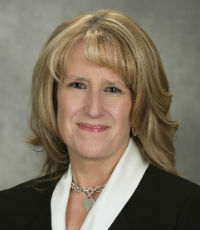
One thing that was evident at this weeks’ New Jersey Mortgage Bankers Regional Conference in Atlantic City was that the industry pivot into non-QM lending continues. As business owners, lenders have to make strategic decisions such as are they going to cut their price, are they going to open up Non-QM or are they going to innovate?
Many companies have been cutting margin and getting into rate wars trying to buy the market. The rate wars have gotten so competitive that companies are just throwing in the white flag and getting out of the market or expanding into other niche areas such as Non-QM.
Other companies are going into Non-QM because they are trying to come up with programs so that they have something to speak about. It’s another way to show they are full service. Their reps have another tool in the toolbox and another reason to get in touch with borrowers.
According to Laura Brandao, President at AFR Inc, “Companies are under pressure to expand their programs to get business. Right now that is one of the biggest things people are doing. But where they missed the mark is that they actually should have been doing this a couple years ago. Many who are jumping in right now aren’t doing their homework to make sure they understand those programs. I wonder what the repercussions are going to be for some of these people as they run into unanticipated complexities and legal issues.”
“I’m a complete specialty lender. Over the course of the last 18 months there have been lanes drawn out in the wholesale market. This person is going after the high FICO, conventional lending lane. Then there’s a lane for someone like me, someone who does renovations, one-time close construction loans, manufactured homes. Then a lane for reverse. A lane for Non-QM. Then you have all these other people trying to grab the leftover bits and pieces of the lanes. As for our company strategy, I know that I can’t be everything to everybody, but I know I can be the best in my lane.”
To support her position as a leader in her lane her focus is on educating the brokers, correspondents and credit unions who do business with her. “I’m going to give you an education and I’m going to hold your hand and I’m going to make you an expert in all my products so that when you come across one of those loans, you’re going to think of me. Any type of renovation or construction loan. These are complicated programs and once my wholesale partners realize this, they also realize they don’t want to just go with any lender.”
The other trend that is taking hold is the comeback of the mortgage broker. Originators are moving away from retail and the big corporate structures and going independent. “In my company we used to be 60-40 correspondent to broker, I am now 70-30 broker” said Ms. Brandao. When Brokers Rallying Against Whole-Tail Lending (BRAWL) came out about two years ago it was the start of a movement. According to Brandao, who is a big supporter of the movement, the brokers came together and formed a community in which they shared information and felt that, as a team, they were stronger than their larger competitors. This group of people shared things like: How do I handle an audit? What technology should I use? How do I recruit new loan officers? They shared this information via social media groups and a Facebook page. Now they have ARIVE.
ARIVE is the new technology platform managed by the Association of Independent Mortgage Executives (AIME), the successor to BRAWL. This platform gives brokers access to a one stop technology for originators and helps level the playing field with larger lenders when it comes to technology. It also offers the ability to use one system to access multiple lenders, making the origination process smoother and easier. It also allows for more price transparency as wholesale lenders post pricing into one common platform for originators to view.
While the broker ranks have a long way to go to get back to pre-crisis levels, they are filling the origination wholes left as large retail banks left the mortgage industry. Empowered by a new sense of community and technological access not previously available to many they seem to be a bright spot in a very challenging market. As such, they might also become a larger part of lenders strategies.



